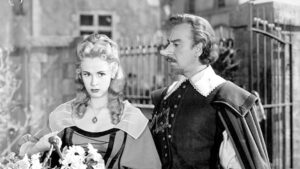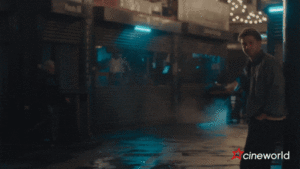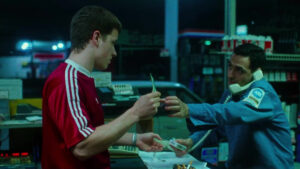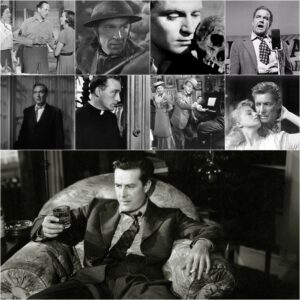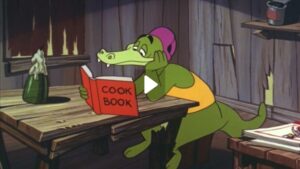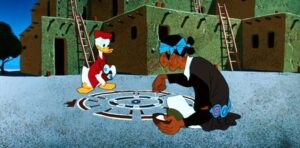The Lost Weekend (1945)
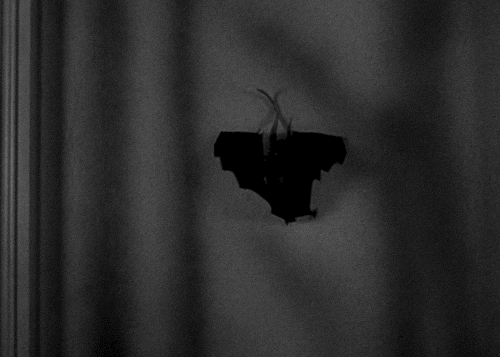
…………………………………………………
The Lost Weekend Movie Review
The Lost Weekend is a 1945 drama film directed by Billy Wilder and starring Ray Milland and Jane Wyman. It’s the best movie of this year and one of the greatest pictures of the forties.
………………………………………………….
“We’re both trying, Don.
You’re trying not to drink,
and I’m trying not to love you“
…………………………………………………..
…………………………………………………..
It is about Don Birnam, an alcoholic who appears to be getting better only to end up spending an entire titular weekend drunk while his brother and girlfriend try everything in their might to help him get over his sickness. A renowned classic, the film was nominated for seven Oscars and it ended up winning four of the big ones rightfully so. It’s an absolute classic and easily the best movie of 1945.
After the Prohibition era, the subject of drinking wasn’t seriously depicted in Hollywood movies. It was either ignored as an issue or depicted in comedic situations. This film changed all of that by dealing honestly and powerfully with the aftermath of drinking alcohol and what it does to not just the person in question but also his closest family.
Many have pinpointed the ending for being unrealistic. I thoroughly disagree of course. Most critics and audiences today think that every film about a serious subject matter should end in tragedy, but that is a black and white view of the world that just isn’t realistic. This film is about a person who ultimately decided to change for the better thanks to the love and support of his girlfriend. The ending is somewhat didactic in that final monologue, but still this is an important drama that preaches a message to the world about the necessity of strong will and family support in order to conquer any obsession and disease, including alcoholism.
…………………………………………………..
…………………………………………………..
The main reason why this film is a masterpiece lies in its approach. Yes, this is a dramatic storyline, but Wilder imbued so much of it with an evident noirish atmosphere that made it riveting and at times even thrilling. One of the most memorable sequences in the film is the iconic scene where Don imagines seeing a rat and a bat inside his apartment during one of his benders. This scene was chillingly disturbing. The hospital scenes were also very effective. The pink elephants line referenced Disney’s ‘Dumbo’, which put a smile on my face.
Ray Milland won his Oscar for portraying Don Birnam and rightfully so as this is one of the most impressive acting performances of the decade. I am a fan of his, and although he would never reach a similar peak later in his career, this is still one hell of a signature performance. His facial expressions were particularly terrific as he sold every single emotion that the protagonist went through, especially being effective portraying the behavior of the drunk as well as his constant panic attacks and desperation. While little psychology behind his alcoholism is given, it wasn’t necessary in this instance as the movie’s biggest focus lies squarely on the effects of this sickness rather than the causes behind it.
Jane Wyman should not be ignored when discussing this film. Yes, Milland is the star, but Wyman was almost as impressive as she delivered here one of her best and most outstanding performances in the role of an ever-supporting, wonderful romantic partner. The film through her character brought the necessary warmth to an otherwise cold and suspenseful picture.
…………………………………………………..
…………………………………………………..
The flashback structure worked wonders to make us better acquainted with the characters, especially the protagonist and how his illness progressed. My favorite scene set in the past was their first date, which was wonderfully coincidental and so charming. Their relationship represents the tower of strength and resilience that triumphs over the evil that has befallen them. Yes, some may say that the depiction of people wanting to help a poor drunk is too hopeful and unrealistic, but I found it to be a beautifully inspirational outlook on humanity.
The brother character was also lovely, and although not as patient as the girlfriend, he was still admirably helpful and caring for his brother in need. I also have to praise the bartender character, who was a wonderful source of warmth as well during the bar scenes that were so well filmed throughout. The two had some of the film’s most emotionally impactful conversations.
The Lost Weekend is gorgeously shot in stark black and white photography that accentuated the doom and despair of the protagonist effortlessly well. The attention to detail throughout was impeccable as it led to so many strikingly suspenseful, almost thriller-like moments where the protagonist tried to hide his bottle or lie to his family etc. The editing and pacing are also fantastic and so is Billy Wilder’s directing. This is one of his greatest and most engaging films that hasn’t got a single wasted scenes – it is very lean and tight at 100 minutes.
…………………………………………………..
…………………………………………………..
The dialogue is absolutely phenomenal and the film’s tone ranged from deadly serious and dark to hopeful and even slightly humorous, all of it being handled with utmost care. Another highlight that shouldn’t be forgotten is the score by the great Miklos Rozsa. He lost an Oscar to his own score in ‘Spellbound’, but his musical work here should receive the biggest praise possible as it’s grandiose, very intense and perfectly fitting the hero’s many benders and panic-induced moments.
Masterfully edited, shot and directed, Billy Wilder’s The Lost Weekend is one of the director’s best movies and one of the greatest 1940s films. It offered a wonderfully hopeful and optimistic outlook on humanity in that moving finale while previously being consistently suspenseful and noirish in its atmosphere. Ray Milland delivered his career-best performance that was rightfully honored by the Academy while Jane Wyman was also terrific as his ever-supporting partner. The film’s attention to detail is incredible and so is its honest, realistic take on the issue of alcoholism. Another highlight is the brilliant score by Miklos Rozsa that elevated every scene from already great to downright incredible. The Lost Weekend is truly a masterpiece that has stood the test of time with flying colors.
My Rating – 5
Results
#1. The Lost Weekend won which of these Oscars?
Select all that apply:







